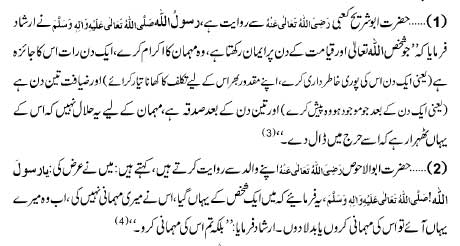HEADACHES usually occur when the head becomes hot due to the pressure of a septic vapor that accumulates near it seeking a way out of the body, but fails. The pressure of the vapor intensifies, just as a pot that is heated but its steam is not able to escape from it. It is a fact that when moisture heats up, it seeks more space and causes a headache because it is unable to expand or escape from the body. This condition causes a type of dizziness.
There are various causes of headaches:
• When one of the four essential conditions (cold, hot, dryness and wetness) becomes predominant.
• Ulcers of the stomach cause headaches, because the cephalic (relating to the head) nerves and the stomach are connected.
• Thick flatulence might accumulate in the stomach then later ascend to the head and cause headaches.
• Headaches are sometimes cause by a tumor in the gastric veins that cause pain in the head.
• When the stomach is full of food it sometimes provokes headaches, as some of the food remains undigested.
• Headaches sometimes occur after sexual intercourse because the body will then be weakened and thus exposed to the heat of the air.
• Headaches sometimes occur after vomiting due to excessive dryness, or to accumulating gaseous materials (flatulence) that ascend to the head from the stomach.
• Not having enough sleep also causes headaches.
• Headaches are sometimes caused due to the pressure exerted on the head, such as when one carries a heavy object on his head.
• Excessive movements and physical activity can also provoke headaches.
• Sadness, depression, obsession, and evil thoughts also provoke headaches.
• Excessive hunger also provokes headaches.
• Those who suffer from a tumor in the cerebral lining sometimes feel as if hammers are constantly pounding on their heads.
• Fever also provokes headaches because of the intense heat that the body suffers from.
The weaker side of the brain will accept septic material and the migraine headache will be accompanied by pulsation in the arteries. The pain may be relieved in this case when one ties a bandage so that the pulsating of the arteries is stopped and thus the pain is lessened.
Abu Na’im said in his book on Prophetic medicine that the migraine type of headache used to attack the Prophet (peace be upon him) and that it would prevent him going out of his house for one or two days at a time. Also, Abu Na’im related from Ibn Abbas that he said, “Once, the Messenger of Allah (peace be upon him) delivered a speech while a cloth was tied around his head.”
Also the Sahih states that the Prophet (peace be upon him) said during the illness that preceded his death: “O my head!” and he used to tie a piece of cloth around his head.
Tying a piece of cloth around the head helps soothe the pain of headaches and migraines. Treating headaches varies according to their type and cause. Hence, headaches could be relieved by vomiting, eating, resting, using cold rags, cooling the body, elevating the temperature, avoiding noise, etc.
Knowing these facts, we should mention that treating headaches with Henna is partial and that it treats only some types of headache. If the headache is caused by high fever – and not by a spoiled substance that requires extraction – Henna blended with vinegar and applied to the forehead will relieve the headache. Henna also soothes the nerves when used as a bandage. Finally, Henna is not only favorable to relieve headaches, but also for various organs of the body and for the hot tumor and inflammations when used as a bandage.
– Ibn-ul-Qayyim is a 7th century Hijra Islamic scholar and this article on headaches is an excerpt from his book Healing with the Medicine of the Prophet.






